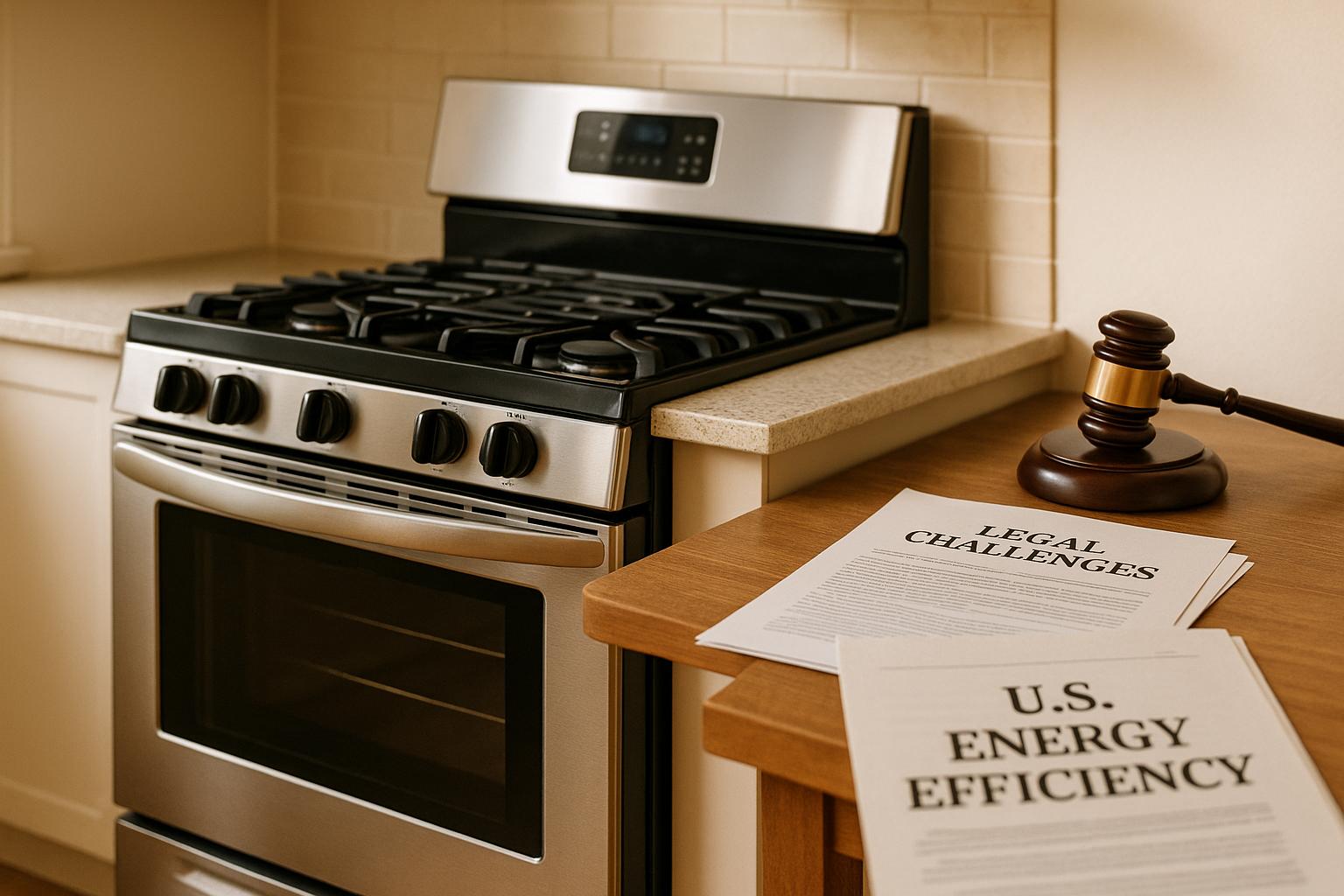Explore the legal scrutiny surrounding the U.S. DOE's Stove Efficiency Rule, its implications, and the ongoing court case challenging its legitimacy.


The U.S. Department of Energy's (DOE) new efficiency standards for conventional cooking products, known as the "Stove Efficiency Rule", are under legal scrutiny. On September 3, the U.S. Court of Appeals for the Fifth Circuit heard oral arguments in the case State of Mississippi et al. v. U.S. Department of Energy (DOE), which challenges the rule. The case highlights broader debates about regulatory authority, executive power, and statutory interpretation under the Energy Policy and Conservation Act (EPCA).
The contested rule was issued as a Direct Final Rule (DFR), a process authorized under a 2007 amendment to EPCA. This process allows federal agencies to implement certain regulations without first proposing them, provided the rule is unlikely to provoke significant controversy. The DFR process includes a comment period, during which public feedback can result in the withdrawal of the rule if significant objections are raised.
Under EPCA guidelines, DOE can issue a DFR for energy efficiency standards if interested stakeholders, including manufacturers, states, and efficiency advocates, submit a joint statement supporting the proposed changes. DOE followed this process in February 2024, adopting revised standards for gas and electric stoves based on a joint statement negotiated by manufacturers and energy efficiency advocates. While New York, Massachusetts, and California supported the revisions, they did not formally sign the joint statement.
The Stove Efficiency Rule is the result of an 11-year process spanning four presidential administrations. Initial efforts to update the standards began under the Obama administration in 2012 but faced delays. In 2015, DOE proposed new standards, which the Trump administration later declined to finalize. In its final days, the Trump administration proposed withdrawing the updated standards, arguing they were not economically justified. That proposal was left unfinalized, however, and the Biden administration resumed the rulemaking process in 2023, ultimately publishing a new proposal.
The 2023 proposal faced pushback from manufacturers, who argued the standards would effectively ban gas-powered cooking products. In response, a group comprising manufacturers and efficiency advocates negotiated revised standards, which DOE adopted in 2024 via the DFR process. DOE received adverse comments during the comment period but found them insufficient to justify withdrawing the rule. The rule's effective and compliance dates were confirmed in August 2024.
Seven Republican-led states - Mississippi, Montana, Louisiana, Nebraska, Tennessee, Texas, and Utah - filed suit against DOE in 2024, asserting that the Stove Efficiency Rule was not based on a fair representation of stakeholders. These states had submitted critical comments opposing the rule before its implementation. During oral arguments last week, the petitioners contended that the joint statement supporting the rule did not adequately represent diverse perspectives, as only a handful of states with similar policy priorities supported the changes.
Another key point of contention was the timeline for the lawsuit. Petitioners argued that their challenge was timely because the relevant deadline should have been based on DOE's August 2024 notice confirming the rule, rather than its February 2024 publication date. DOE, however, countered that the challenge was untimely and that its August notice was merely a formality, not grounds for judicial review.
DOE also defended its decision to proceed with the rule despite adverse comments, emphasizing that, under the DFR process, the agency is not obligated to withdraw a rule unless it determines the objections provide a reasonable basis for doing so.
This case underscores the complex political dynamics surrounding appliance efficiency standards. Unusually, the Trump administration, now in its second term, is defending a regulation rooted in the Biden administration’s policy framework. At the same time, the current administration has rolled back other standards for appliances such as dishwashers and lightbulbs.
The Fifth Circuit's decision could have far-reaching consequences for DOE's regulatory authority. A ruling against DOE may limit the agency’s discretion in using the DFR process, potentially requiring more traditional notice-and-comment rulemaking procedures for future energy efficiency standards. This could reshape how negotiated standards are implemented and impact regulatory strategies moving forward.
The Fifth Circuit is expected to issue a decision later this fall. If the court vacates the rule, DOE may need to restart the rulemaking process from scratch, creating uncertainty for stakeholders in the appliance, energy, and environmental sectors. For now, the fate of the Stove Efficiency Rule remains to be determined.